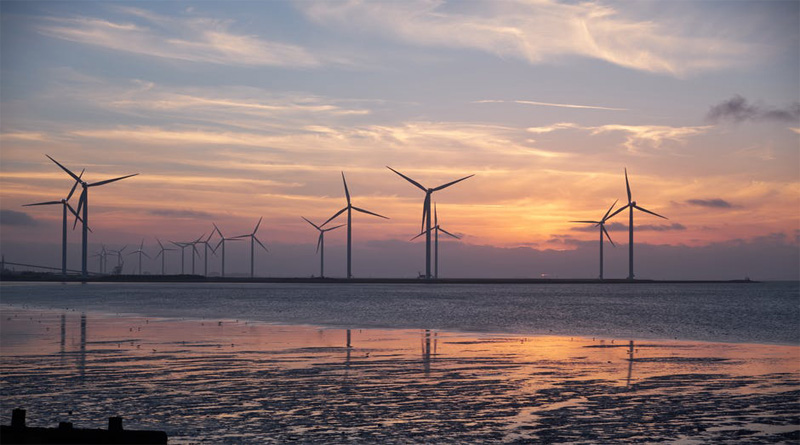

The International Renewable Agency (IRENA) has made a strong pitch for better diffusion and adoption of the latest technology and best practices for Offshore Wind Energy to thrive. This comes at a time when the sector has been relatively overshadowed by the massive push for solar in large areas, with solar accounting for 98GW of new capacity, even as Wind added 57 GW during the year. In what was a breakthrough year for renewables, IRENA’s pitch comes when countries like India have taken the initiative to set up the International Solar Alliance (ISA) to ensure faster success in solar. Wind Energy, thanks to its more exacting demands geographically, risks being left behind in the current momentum behind solar, even though talk of more hybrid projects that combine wind and solar has increased recently.
Offshore wind energy stands on the cusp of rapid and widespread growth thanks to technology breakthroughs and falling costs. But what is it missing to get over the final hurdle to realise its full potential?
The rapid growth of the technology is witnessing breakthroughs in the fixed bottom and floating foundations, and the development of giant turbines able to power thousands of homes, creating new deployment opportunities and driving cost reductions across the industry.
The one key factor that it’s currently missing is the global adoption of the available technology to harness energy from offshore wind. Greater acceptance and policy reforms from the authorities will need to work in tandem for this niche area of the power sector to nourish and for that the industry should be encouraged to globalise in order to achieve the 500 gigawatts (GW) of installed capacity outlined under IRENA’s (International Renewable Energy Agency) 2050 transformation roadmap, up from the 19 GW of installed capacity today.
The development and adoption of international standards that govern the entire technology life cycle can provide such encouragement, according to the findings of a new report launched by the International Renewable Energy Agency (IRENA). ‘Nurturing Offshore Wind Markets: Good practices for International Standardisation’ provides a detailed analysis of standardisation frameworks developed by front-runner countries and identifies areas where more work is needed. Countries with plans to deploy offshore need to learn from countries like the UK, Denmark and Germany who are the pioneers if this sector and now are established leaders, and one country that has followed their example is China. The Asian superpower recently emerged as a key player in the market having installed 1.1GW offshore wind capacity last year.
“Now is the time for the development of a harmonised and documented global standardisation framework that enables these countries to access the cost-effective potential of offshore wind,” said Dolf Gielen, Director of IRENA’s Innovation and Technology Centre.
“As costs fall and technology improves, countries beyond the existing European market will pursue their offshore wind potential in support of strategic energy policy priorities,” he added.
With international standards being implemented, and blended technical requirements and certifications that are accepted across global markets will, in turn will put the growth of the sector on an accelerated program which will assist in trading which will increase consumer and investor confidence, improve the overall safety and reliability of the Industry while reducing the costs of the offshore technology.
Offshore wind has the potential to be inclusive, cost-effective and game-changing, and the time for governments to put in place detailed offshore standardisation and quality control strategies to drive the development of domestic offshore wind energy right now, as the costs continue to fall.
copyright:iamrenew.com
The first unit of the Compressed Biogas Plant built by Reliance at the Peddapuram Industrial…
As Karnataka gains momentum in the direction of ‘waste to energy,’ the Mysuru City Corporation…
DCM Shriram Limited has announced that it has successfully commissioned a new Compressed Biogas (CBG)…
TKIL Industries has partnered with global biogas conglomerate KIS Group to advance the production of…
1. What is Awite and what does it have to offer to the Indian biogas…
The Indian Federation of Green Energy (IFGE) and the Embassy of Nepal have jointly organized…